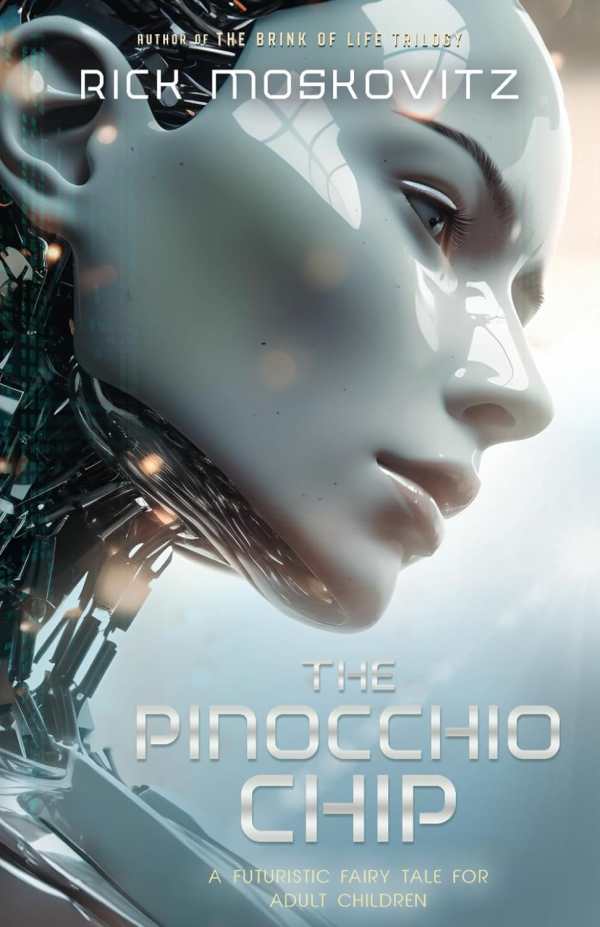The Pinocchio Chip
The science fiction novella The Pinocchio Chip muses through the ethics of making artificial intelligence more human.
Rick Moskovitz’s science fiction novella The Pinocchio Chip explores artificial intelligence and what it means to have sentient consciousness.
Photina is a SPUD (Sentient Processing Unit/Device) in a futuristic society in which AI and human-nonhuman equity are polarizing topics. After her lifelong caregiver, Corinne, dies in her sleep, Photina changes; unfamiliar lines of code appear in her system, and she becomes less concerned with protecting Corinne’s husband, Marcus, and daughter, Natasha. Meanwhile, an unidentified SPUD begins attacking humans, prompting Photina to investigate.
The stakes are high in this tale, in which the central conflict and subsequent discoveries are covered with speed. As AI evolve, ethical questions are centered and new threats arise, as with a “human supremacist” group whose frightening and intimidating elements are kept vague, and with the implied potential for Photina to harm Natasha despite their previous importance to each other. But the arrival of the moving answers to related questions is quite delayed.
Photina speaks in a clipped tone, and her thought patterns are relatively mechanical too. She is said to be without the capacity for emotions, and she observes people’s behaviors at an inherent distance. Her dispassionate perspective means that the instances of human bonding that do arise are often surprising, as are the book’s portrayals of human grief, rage, or fear.
Human beings, seen from Photina’s limited perspective, are often portrayed as being just as robotic as the AI around them. Rather than lingering on feelings and trying to make human experiences tangible, Photina is a straightforward narrator whose language is direct and somewhat removed throughout. Indeed, she is programmed to stick to the objective facts. This also makes her incapable of behaviors tied to shame and cunning, undermining her potential to be regarded as a true threat.
Indeed, the book’s elements of intrigue are stymied by Photina’s general adherence to her programming. There are no true secrets with her, and no real unspoken interpersonal dynamics to puzzle through. She even understands mortality in terms of her own: “Does my existence even matter to me?” An outside observer of human behaviors, she focuses more on people’s strange whims than on the central mystery. The satisfaction to be had here is ultimately more cerebral than the initial SPUD attacks suggest.
The science fiction novella The Pinocchio Chip muses through the ethics of making artificial intelligence more human.
Reviewed by
Natalie Wollenzien
Disclosure: This article is not an endorsement, but a review. The publisher of this book provided free copies of the book and paid a small fee to have their book reviewed by a professional reviewer. Foreword Reviews and Clarion Reviews make no guarantee that the publisher will receive a positive review. Foreword Magazine, Inc. is disclosing this in accordance with the Federal Trade Commission’s 16 CFR, Part 255.

